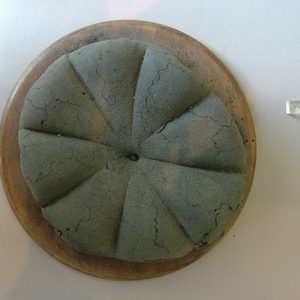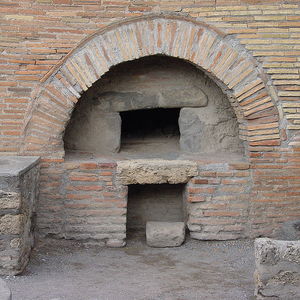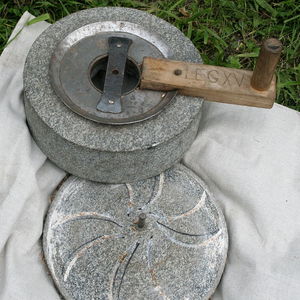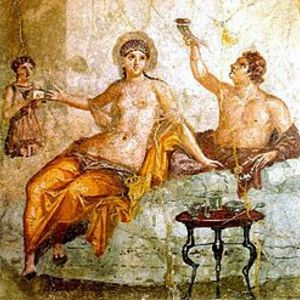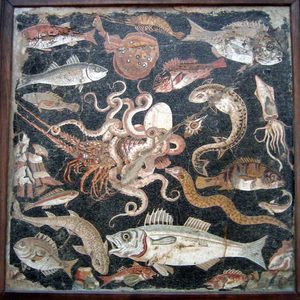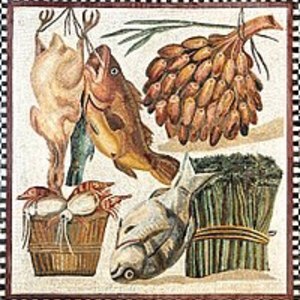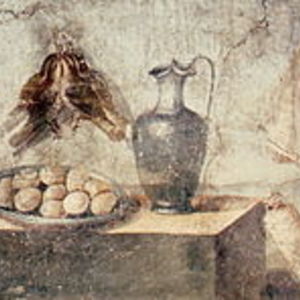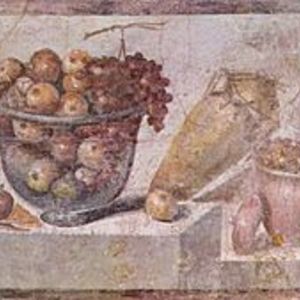Food in Ancient Rome
Food plays a special role in human life: without it, one simply cannot survive. Ancient Roman cuisine was very diverse and had a class-based character. In ancient times, people living on the Italian Peninsula commonly consumed thick porridge made from spelt. Gradually, it came to be associated with the food of the poor. Other commonly consumed foods included cabbage, onions, garlic, leeks, beets, and legumes. Surprisingly, meat was rarely consumed by these peoples. It is impossible to imagine modern food without bread. In Ancient Rome, bread came in various compositions, with each type intended for different segments of the population. At least until the 2nd century BCE, bakers were unknown because bread baking was done by women or slaves. Everything changed after the Syrian War (192 BCE - 188 BCE). The Romans became familiar with the taste of eastern life, and consequently, many aspects of their lives changed: meal times, the quantity and size of meals, and more.
Prior to the 2nd century BCE, Romans ate only twice a day: a breakfast consisting of bread, wine, milk, eggs, olives, cheese, raisins, and more, and a lunch that consisted of the same foods as breakfast. Now, however, they began consuming food three times a day: ientaculum (breakfast), prandium (lunch), and cena (somewhat similar to our dinner), with the latter being particularly favored. Cena consisted of three parts: the appetizer, the main course, and dessert. The appetizer (promulsis) consisted of salad, eggs, various shellfish, and fish served with piquant sauce. The main goal of this part was to stimulate the appetite. Dessert included cookies, fruits, and various sweets. A large number of servants were employed to prepare the food for cena.
Among the many foods, fish was highly valued by the Romans, especially by the aristocracy, as it was expensive. The most expensive fish was red mullet. Other popular fish included sea eel and flounder. Less valued were ordinary eels and sea pike, which were popular among common, less wealthy citizens. Mollusks should also not be overlooked: murex (edible snail), shells, and oysters. Both fresh and salted fish were consumed. Sturgeon and tuna were primarily salted, and the salted fish was served with olive oil and vinegar.
Special attention should be given to the birds served at the table. Interestingly, the Romans consumed birds such as peacock, stork, and crane. They also served quails, partridges, thrushes, and pheasants. Naturally, this was characteristic of aristocratic tables. Common people consumed domestic poultry such as chickens and ducks, but they were rarely served at the table, as mentioned earlier. In addition to the aforementioned foods, it is worth mentioning the animals that were consumed by the inhabitants of Ancient Rome. The aristocrats most often enjoyed hare, which they raised in special enclosures. They also consumed deer, roe deer, fallow deer, rabbits, and sheep. The most important dish was domestic or wild boar.
Among vegetables, lettuce, cabbage, turnips, rutabagas, artichokes, pumpkins, watermelons, cucumbers, sorrel, garlic, and onions should be highlighted. Mushrooms were also consumed, including morels, white mushrooms, and truffles (except for black truffles, which were unknown to the Romans). Legumes formed the basis of the peasant's table in Ancient Rome: peas, lentils, and more.
Fruits such as apples, pears, grapes, olives, and dates were always present on the Roman table. No preparation of an ancient dish was complete without the use of spices. Olive oil played a significant role as a seasoning for dishes, and food preservation without it was impossible. Other ancient seasonings included salt, vinegar, and pepper. Dill seeds, anise, mustard, and thyme were used in cooking. During the time of the Empire, ginger and cinnamon were added to food. Cookies were made in various forms, shaped like animals and birds, filled with honey, raisins, nuts, and more. Such cookies were served to guests at the table and taken home as a treat.
Related topics
List of literature
1. M. E. Sergeenko "The Life of Ancient Rome"
2. F. F. Velishsky "Life of the Greeks and Romans"
